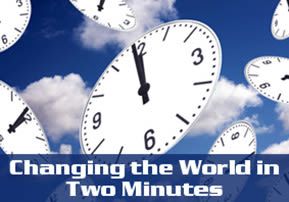
Changing the World in Two Minutes
Try to change the spiritual world-view of a man who’s been learning in yeshiva for ages, but who can’t conceive of a higher power in the world than ‘nature’...

Yesterday, I met someone who ‘can’t stand Rav Arush’s books’. I was quite taken aback; OK, maybe you don’t agree with everything in them, but to say you ‘hate’ the teachings? That’s very strong language…
I asked him what books he’d read. It wasn’t entirely clear if it was ‘The Garden of Peace’, the marital guide for men, or ‘The Garden of  Emuna’, because it turned out he’d only read ‘excerpts’.
Emuna’, because it turned out he’d only read ‘excerpts’.
I met this man at a friend’s house. The friend was already squirming uncomfortably, concerned about where this conversation was going, and I was caught in a bind. No-one ‘hates’ Rav Arush’s teachings passionately unless underneath it all, it’s striking a chord.
The person I was talking to suffers from terrible migraine headaches. It quickly became clear that this was the root of his problem with Rav Arush’s teachings, or at least, the little bit he’d read of them.
“According to those books, I’m meant to jump up and down and dance when I get a migraine, right? I’m meant to be ‘happy’ that I’m in excruciating pain, and can’t function…”
What could I say? The short answer was ‘yes’ – we are meant to be happy with our lot, whatever our lot entails. But he, clearly, wouldn’t accept the short answer.
So I asked him, where is your migraine coming from? “Genetics.” Ooookaaay, who created your gene pool? “Nature.” And that’s when I realized what an absolutely enormous problem this man had.
He was ‘religious’. He was studying in yeshiva – a good yeshiva, with great teachers and a sincere commitment to authentic Torah. And yet, ‘nature’ was sending him his blinding headaches.
It wasn’t the time or the place to get into a big, involved discussion about the Rambam’s first principle of faith, which states that: ‘Hashem did, does, and will do everything’ – including his headaches.
It wasn’t the time or the place to try to start explaining the three main principles of emuna as brought down in the Garden of Emuna, namely:
Basic: everything comes from Hashem, even the smallest, apparently most insignificant things (including the headaches…)
Intermediate: everything that Hashem does is for the best. Everything that happens to me, even the things that I don’t like, and that are painful a) come from Hashem and b) are for my very best (even the headaches…)
Upper level: Hashem is doing everything for a specific purpose. My job is to try to work out what messages Hashem is giving me, and how He wants me to respond (and particularly, how he wants me to respond to the headaches…)
I had a maximum of two minutes to try to change the spiritual world-view of a man who’d been learning in yeshiva for ages, but who couldn’t conceive of a higher power in the world than ‘nature’.
When you first hear the principles of emuna, and you first start to really internalize what that means – that you are nothing without Hashem; that Hashem is really in control of every tiny thing and you are ultimately powerless to change things – you usually have a very strong reaction.
Some people have a strong urge to throw the emuna CD they are listening to out of the window. Others have a strong urge to deface the pages of the emuna book they are reading. Still others have a strong urge to ‘get hold’ of Rav Brody or Rav Arush, and give them a piece of their mind…
Standing there, in my friend’s house, I knew that the man with the migraines was going to have a ‘strong reaction’ if we continued talking about emuna. That would make everyone very uncomfortable, and do a big disservice to my friend and his wife, who clearly didn’t want world war three erupting in their living room.
What to do?
I started to talk about myself. I started to tell the man with the migraines how I’d read through a whole bunch of Jewish literature, but I’d never found anything that helped us to accept suffering happily – until I started to learn about emuna.
He smiled a fake smile, and told me that ‘it was great it worked for me’. So I took the easy out, and fell back on that convenient, argument-avoiding phrase that ‘everyone has their own path towards G-d’ before changing the subject.
What I really wanted to tell the man with the migraines is that in chapter 28 in Deuteronomy, there is a long list of 98 curses that G-d forbid, could fall on Am Yisrael if they don’t do what G-d wants.
What’s interesting about those curses is that they don’t come about because people eat bacon and lobster; or because they blatantly break Shabbat; or because they are going around raping, murdering and pillaging, terribly bad as all those things are.
It clearly states in chapter 28 of Deuteronomy that G-d wants Am Yisrael to serve Hashem ‘b’simcha’ – with happiness.
Even when Hashem makes them poor. Even when Hashem makes them ill. Even when Hashem makes them ‘suffer’.
What’s more, it clearly states in the Shulchan Aruch, the code of Jewish law that is universally accepted in the orthodox world as being definitive, that a person must bless on the ‘bad’ with the same sincerity as they bless on the good.
If a person doesn’t have emuna; if they don’t believe that G-d is the root cause of everything in the world, and that everything that comes from Hashem is good – they will never be able to sincerely bless on the bad. They will never be able to serve Hashem ‘b’simcha’, particularly if Hashem is sending them blinding headaches.
And then, G-d forbid, they are opening the door to that long, horrible, list of 98 curses.
In the car on the way home, I pondered on whether I’d done the right thing. I clearly didn’t come up with the world’s best arguments for learning and living emuna; I clearly didn’t manage to ‘reach’ the man with the migraines, and I may even have put him off more, G-d forbid.
But however it was, that was how Hashem wanted it to be.
It’s not my job to go round trying to make people have emuna. All I can do, I realize, is be me, with emuna, and not change how I act or what I say to ‘fit in’ with other people’s perceptions of a G-dless, ‘natural’ world.
So I’ll continue to tell people the Breslev teachings that helped me cope with hardship in my own life; I’ll continue to explain how talking to G-d every day has helped me so much to get more clarity, happiness and peace of mind; and I’ll continue writing about my ‘inner world’ for the Breslev website, because for all I know, the two and a half minutes it took you to read this maybe did change something profound, after all.



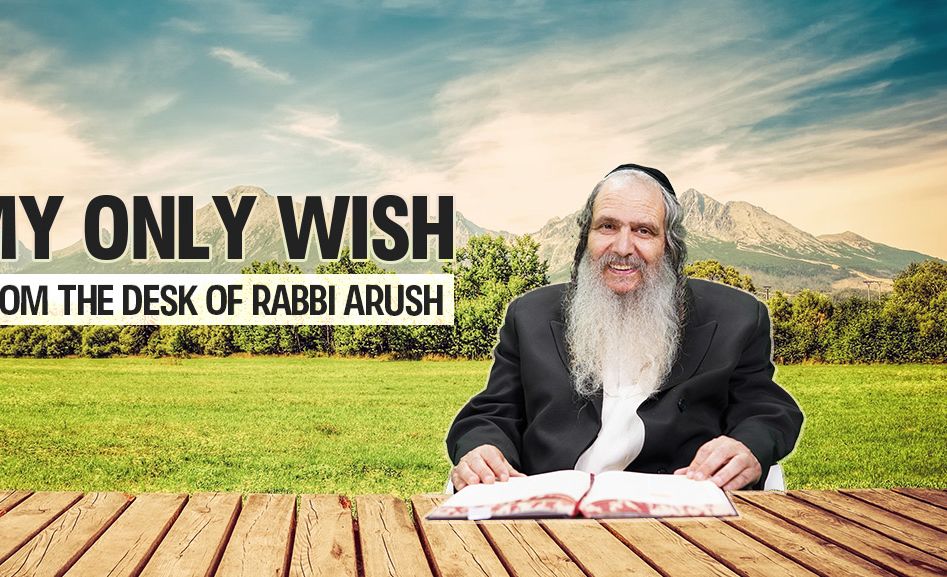
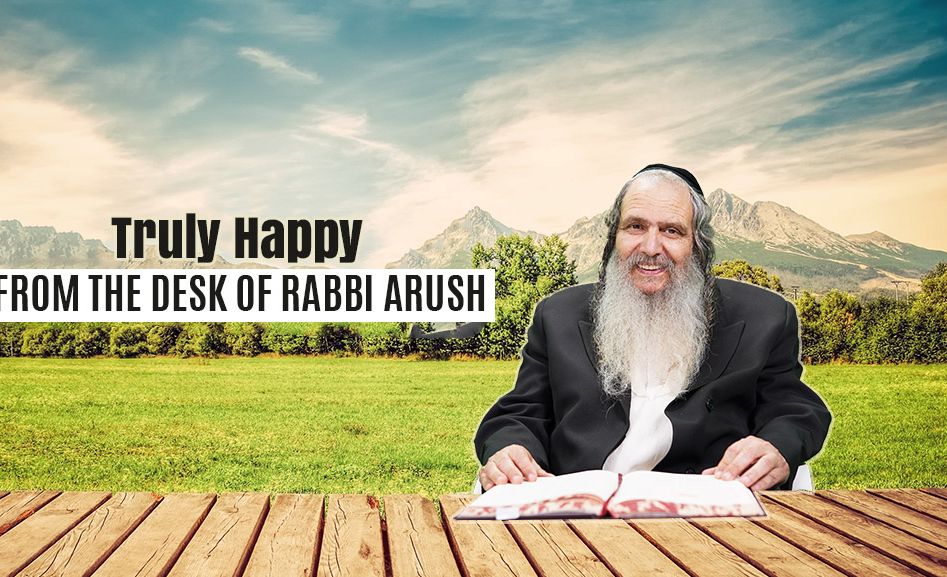
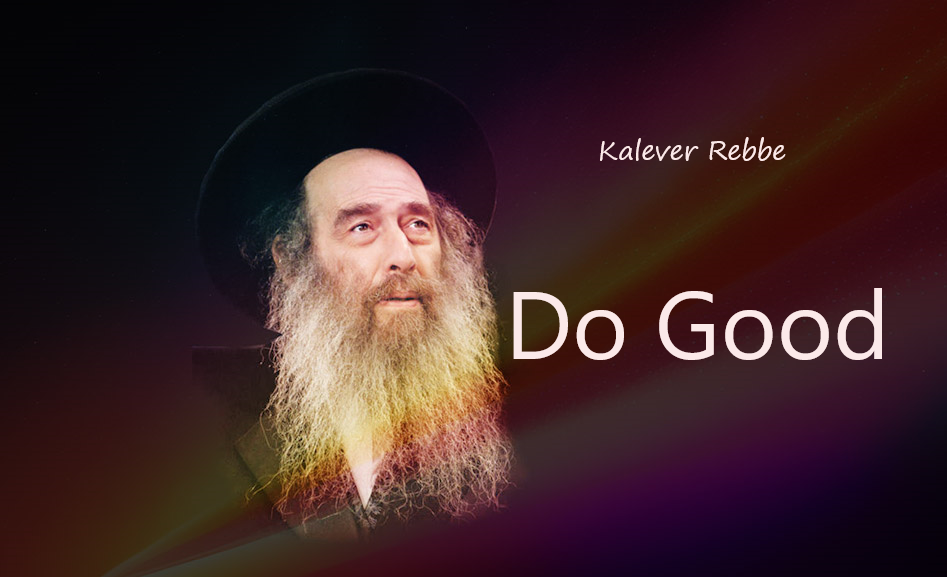





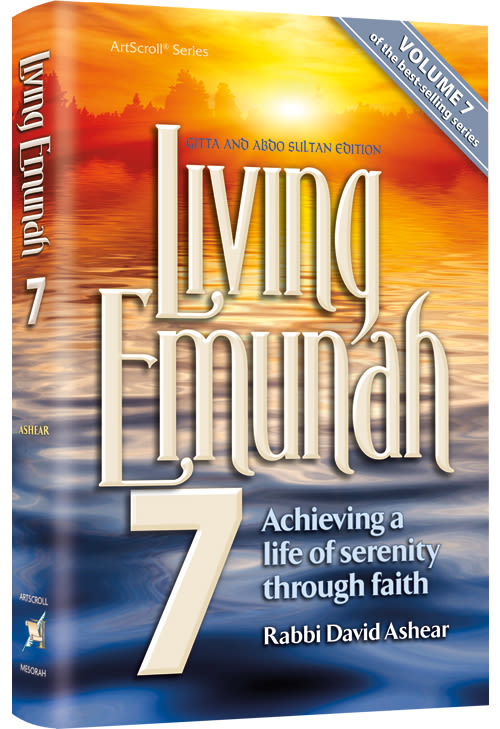
Tell us what you think!
Thank you for your comment!
It will be published after approval by the Editor.